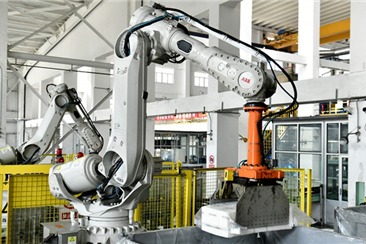Baidu unveils new Kunlun chips


Chinese tech giant Baidu Inc on Thursday unveiled the latest generation of its self-developed Kunlun chips and the upgraded version of its large language model Ernie 5.0, marking a significant step in boosting artificial intelligence technology innovation.
According to the company, the Kunlun M100 chip is designed and optimized for large-scale inference scenarios of AI models and is scheduled to be launched in early 2026, while the Kunlun M300 caters to ultra-large-scale, multimodal model training and inference, and will be rolled out in early 2027.
The announcements were made at Baidu World 2025, the company's annual flagship tech event in Beijing.
The launch of the new Kunlun chips comes as the United States has tightened export controls on advanced AI chips to China, prompting Chinese companies to develop their own chips and processors, or seek domestic alternatives.
Baidu also announced that two supernode products — which leverage advanced computing power networking and link multiple chips to enhance inference and training performance of AI models — will be made available next year.
The newly released LLM Ernie 5.0 model contains 2.4 trillion parameters, and is capable of multimodal understanding and generation capacities, and supporting input and output of text, images, audio and video.
The model features a comprehensive upgrade in its core capabilities, excelling in multimodal understanding, instruction following, creative writing and tool application, and demonstrating strong abilities in terms of comprehension, logic, memory and persuasive abilities.
Robin Li, cofounder, chairman and CEO of Baidu, said LLM technology is evolving rapidly with the ability to self-learn, iterate and innovate, emphasizing that the company will continue to invest in more cutting-edge AI models to boost technological innovation.
He said in the past, the AI industry structure resembled an upright pyramid and the chip layer at the bottom captured the majority of the value, while models and applications have seen their economic returns decrease progressively.
However, this industry structure is unhealthy and unsustainable, Li noted, adding that the models built on the top of the chips as well as the AI applications based on models should generate more value.
Li is also bullish on the prospects of AI-powered digital humans — a new and universal interaction interface in the AI era that can be used in fields like e-commerce, education, healthcare, customer service and sales.
Charlie Dai, vice-president and principal analyst at research company Forrester, said as a veteran in AI innovation, Baidu's Kunlun chip roadmap is pivotal in reducing reliance on foreign GPUs, or graphics processing units, lowering costs as well as ensuring performance scalability.
According to him, the launch of multimodal LLM, along with other products and solutions like real-time interactive digital humans, not only positions Baidu AI Cloud as a full-stack AI powerhouse to drive efficiency and innovation across industries such as e-commerce, finance, transportation, manufacturing and autonomous vehicles, but also helps lower barriers for enterprises to adopt AI and drive the development of AI ecosystem, he added.
Baidu also announced that its Huiboxing digital human technology is now open to global developers. The gross merchandise value, or GMV, generated by digital human livestreaming has increased by 91 percent year-on-year, while the number of livestreaming sessions has risen by 119 percent during this year's Singles Day shopping carnival.
The digital human technology is also accelerating global expansion. It has been launched in Brazil and will make inroads into Southeast Asia and the United States, Baidu said.
"The multimodal LLM is an undeniable future development direction for generative AI technology," said Lu Yanxia, research director at market consultancy IDC China.
These LLMs necessitate higher demand for data and knowledge in professional fields, and for talent that can fine-tune specialized models based on diverse industrial demands, Lu said.
The continuous advancements in AI models will bring about fresh business opportunities for domestic AI servers, cloud computing and chip companies, she added.
fanfeifei@chinadaily.com.cn




































